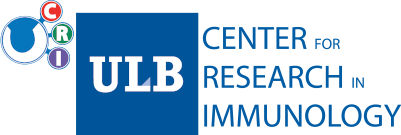Description of the research topics
Early-life immunity presents unique features of innate and adaptive lineage development compared to adult-type immunity. It is characterized by a dominance of Th2 and regulatory T-cell adaptive immune responses that are necessary for immune tolerance against self-antigens and non-inherited maternal antigens, establishment of a stable microbiome and control of tissue damaging pro-inflammatory response. However, this particular CD4+ T-cell differentiation may also account for impaired responses to microbes and to most vaccines and increased susceptibility to allergies in early life.We contributed to the study on this unbalanced neonatal CD4+ T-cell immunity using preclinical models of microbe infections and neonatal tolerance against alloantigens. In 2016, we discovered a precursor subset of type 1 IL-12p40 producing conventional dendritic cells, called pre-cDC1. Those antigen-presenting cells display unique regulatory properties as they may secrete IL-10 and therefore control the effector T-cell activation upon bacterial infection such as Listeria monocytogenes. Those pre-cDC1 are highly sensitive to environmental exposure able to promote its maturation.
Epidemiological studies established the link between perinatal environmental component exposures and susceptibility to immune disorders later in life. Moreover, several studies have revealed the immunostimulatory properties of probiotics, living microorganisms derived from commensal flora which, added in adequate quantities as supplements to food products, confer a health benefit to the host.
Microbial education of perinatal immunity through pre-cDC1 maturation is our major research topic. For this, different cloned strains of probiotics are being evaluated in neonates for their effects on:
- Food infections (Listeria monocytogenes)
- Allergy-type inflammatory reactions (Th2-type responses)
- Respiratory tract infections (H1N1 virus)
- Vaccine responses: activation of effector-type and memory-type T lymphocytes.
- Intestinal microbial genome (metagenomic study by high throughput sequencing).
- Metabolites of the digestive tract (metabolomic study by nuclear magnetic resonance and mass spectrometry) as biomarkers acting on the immune system.
